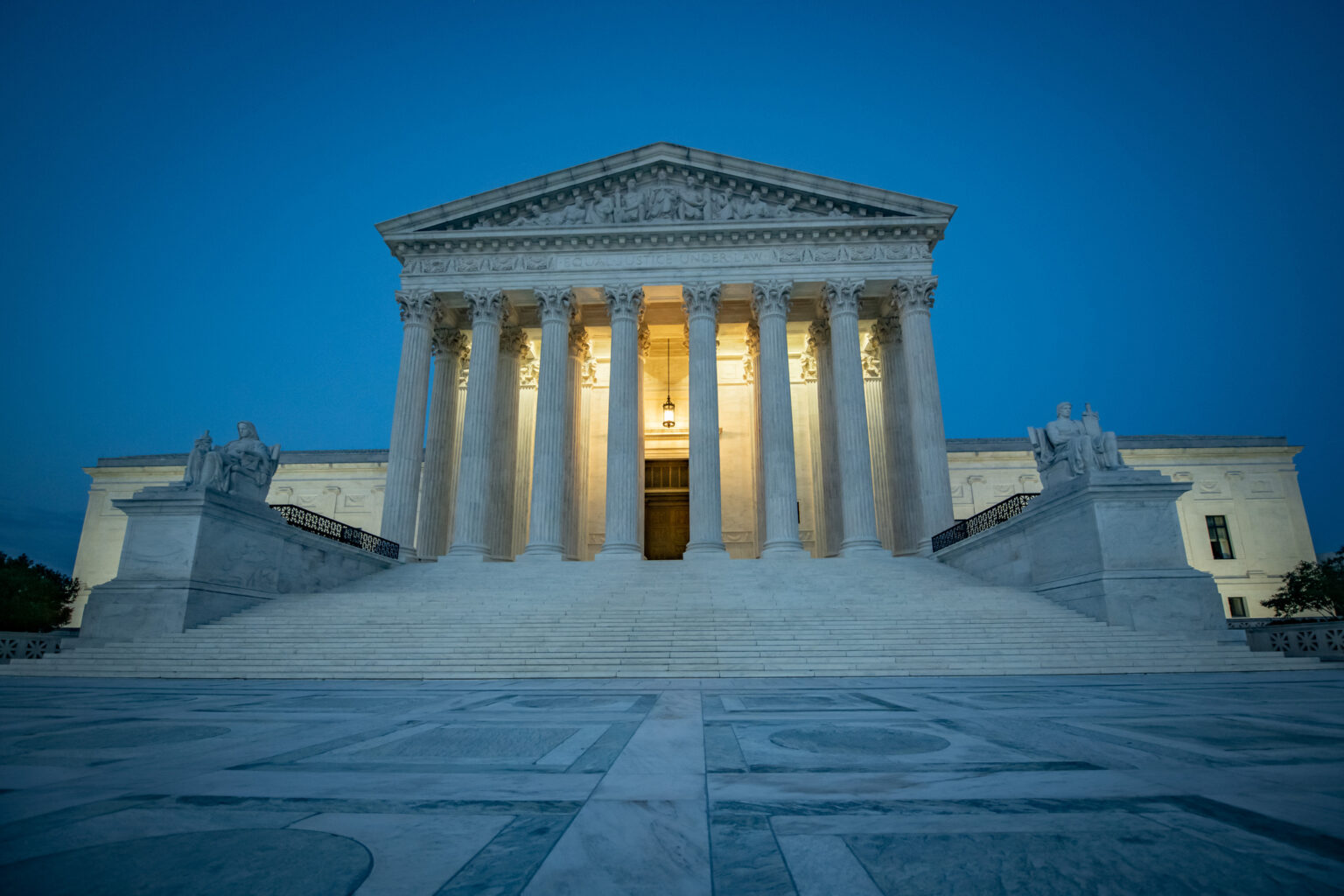Communities in the United States suing major fossil fuel producers over climate-related harms got a boost in court on Thursday. At the request of the U.S. Supreme Court, the Department of Justice weighed in on a key procedural question that has been ensnaring the progress of many climate accountability lawsuits — the question of where the lawsuits should be heard.
In 2018, the city and county of Boulder and the county of San Miguel in Colorado filed suit in state court against ExxonMobil and Suncor, arguing the oil companies’ disinformation about their products hurt Coloradans. But the oil companies pushed for the case to be tried in federal, not state, court – a seemingly minor distinction that could have major consequences.
Last October, the Supreme Court called on the U.S. Solicitor General to file a brief “expressing the views of the United States” regarding this jurisdictional dispute that has tied up the Colorado and other climate liability lawsuits and delayed them from getting to trial. The fossil fuel defendants have been fighting relentlessly to force the cases into federal court, where they see an easier path to dismissal, while the communities suing companies like ExxonMobil want the litigation to proceed in state court where it originated.
In its brief filed Thursday, the Solicitor General backed the Colorado communities’ stance that their legal claims arise solely under state law and therefore belong in state court — a reversal from the Justice Department’s position under the Trump administration supporting the fossil fuel industry’s arguments.
“By finally ending its Trump-era support for Big Oil, the Justice Department has added its voice to a series of unanimous court rulings that support communities in their efforts to hold fossil fuel companies accountable for their climate lies,” Center for Climate Integrity president Richard Wiles, an advocate for holding climate polluters accountable, said in a statement.
The move potentially puts the Colorado communities one step closer to finally getting to trial in state courts.
“Since the Colorado communities filed this case in 2018, ExxonMobil and Suncor have consistently sought to delay the litigation — moving the case from court to court and losing each step along the way. Today’s development brings these communities one step closer to holding fossil fuel companies accountable for their misconduct and obtaining remedies for the serious climate harms Colorado residents are facing,” said Marco Simons, general counsel at EarthRights International, which is supporting the Colorado plaintiffs. As the climate heats up, Colorado is facing hotter springs and summers, a lengthening wildfire season, and shifting precipitation patterns.
The Colorado case, like other climate liability cases filed by municipalities and states against Big Oil, alleges that the industry engaged in a decades-long campaign of disinformation and deception that misrepresented the climate dangers of its products. The case alleges violation of state law, including the Colorado consumer protection statute, and despite dogged attempts by Exxon and Suncor to punt the case to federal court, these courts have repeatedly said that they are not the appropriate venue for the litigation. A federal appeals court ruled twice that the Colorado case belongs in state court.
ExxonMobil and Suncor then turned to the Supreme Court, filing a petition for review in a last-ditch effort to avoid having to litigate in state court. It wasn’t the first time the industry filed with the Supreme Court in climate liability litigation. In October 2020, the high court granted the industry’s petition in a case filed by Baltimore and then ruled in the industry’s favor on a narrow technical issue that forced federal appeals courts to revisit their previous rulings in several cases, including the Colorado case. Since then, five federal appeals courts have all upheld the position that these cases belong in state court.
Now the federal government has added its weight behind this position. In its brief, the Department of Justice said that it has “reexamined” its own stance and concluded that state law claims should not be “recharacterized” as arising under federal law. The Justice Department says the Supreme Court should deny the industry’s petition in the Colorado case.
🚨 BREAKING: The Justice Department is siding with communities in Colorado and across the U.S. that are fighting to hold Big Oil companies accountable for their climate lies. pic.twitter.com/4rcXmRfY6h
— Center for Climate Integrity (@climatecosts) March 16, 2023
It remains to be seen whether or not the Supreme Court will follow this advice. If the Court does deny the petition, it may also deny petitions pending in a handful of similar climate cases against the industry. “Whatever they decide to do in the Boulder case will have implications for these other cases,” Center for Climate Integrity’s Alyssa Johl explained.
Karen Sokol, professor of law at Loyola University New Orleans College of Law, cautioned that the Department of Justice’s brief may not have much sway given what appears to be an emboldened conservative majority on the Supreme Court.
“I don’t have confidence that the Solicitor General’s brief will matter a lot. I think this [Supreme Court] majority does what it wants,” Sokol said. “The Court has shown that it’s quite favorable to industry generally across multiple cases and multiple areas of law, and the fossil fuel industry in particular.”
In addition, at least two justices have ties to the oil industry writ large. Justice Amy Coney Barrett’s father was a Shell attorney for nearly three decades and served in leadership positions with the American Petroleum Institute, and Justice Samuel Alito owns stock in ConocoPhillips and Phillips 66 (Alito recused himself from the Baltimore case but Barrett did not).
In an emailed statement responding to the development in the Colorado case, Exxon criticized the tactic of climate litigation. “Lawsuits like this one do nothing but waste time and resources and, more importantly, don’t advance efforts to address climate change,” Exxon spokesperson Todd Spitler said. “While we’ll fight this, we’ll also continue devoting billions of dollars to meet today’s energy needs while leading the way in a thoughtful energy transition towards net zero carbon.”
Suncor did not immediately respond to a request for comment.
Subscribe to our newsletter
Stay up to date with DeSmog news and alerts







